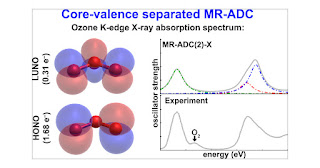Challenging the Foundations: A Comprehensive Study on the Direct Observation of Kirchhoff's Law Violation in Thermal Radiation

Abstract : Kirchhoff's law of thermal radiation is a fundamental principle in classical physics that states the emissivity and absorptivity of a perfect blackbody are equal at any given wavelength and temperature. This principle plays a crucial role in understanding thermal radiation and the behavior of blackbodies. However, recent experimental evidence challenges the validity of Kirchhoff's law, suggesting that it may not hold true in certain conditions. This research aims to present a comprehensive study on the direct observation of the violation of Kirchhoff’s law of thermal radiation and investigate the implications of these findings. Kirchhoff's law of thermal radiation, proposed by Gustav Kirchhoff in 1859, is one of the cornerstones of classical thermodynamics and electromagnetism. It states that the emissivity (ε) and absorptivity (α) of a material are equal at a specific wavelength and temperature. Mathematically, Kirchhoff's law can be expressed as follows: ε(...



